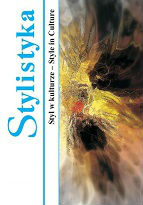PRZEK£AD TEKSTU NAUKOWEGO NA TLE LINGWISTYCZNYCH BADAŃ POLONISTYCZNYCH I GERMANISTYCZ NYCH
An academic text translation against the background of German and Polish linguistic research
Author(s): Anna Hanus, Iwona SzwedSubject(s): Language and Literature Studies
Published by: Uniwersytet Opolski
Keywords: translation of scientific texts; translation of academic texts; linguistic genology; linguistic research in Polish-German contrastive perspective; textology
Summary/Abstract: Linguistic studies in various countries are often anchored in different traditions and based on different models of competence, which may result in discrepancies in approach to specific linguistic problems and concepts. Subsequently, attempts of academic exchange between the linguists coming from different countries are often hindered by terminological problems. In order to make the interchange of the ideas in international academic circles possible a dialogue is the first and an indispensable condition in which the role of a translator, as a link between different traditions and research models, seems crucial. The inspiration for the present article was the ongoing work on the German translation of Genologia lingwistyczna. Zarys problematyki (Linguistic genology. An outline) by Bo¿ena Witosz (publ. 2005). Translating of this monograph is being carried out under the NPRH (National Program for the Advancement of the Humanities) grant for the years 2012–2014. This translation is supposed to contribute to the above-mentioned dialogue between the linguists, and to promote the academic achievements of Polish linguistic genology among the German-speaking readers. Additionally, it is an inspiration for critical thought on discrepancies, but also common features in Polish and German textology, which make substantial impact on the translation of the foregoing monograph. The article presents specific translation problems, e.g. questions of referring to divergent systems of knowledge and citing quotes embedded in those systems; using source texts connected to the Polish culture and literary traditions, dissimilarities in Polish and German academic style in linguistic papers or difficulties in rendering the author’s individual style. The article also highlights the importance of deep translator’s reflection on the specificity and uniqueness of the two research areas, the more that it is difficult to find models of the translations of this kind, since to date any papers in the area of Polish linguistic genology have not been translated into German.
Journal: Stylistyka
- Issue Year: 2014
- Issue No: XXIII
- Page Range: 357-376
- Page Count: 1
- Language: Polish

